Sumatran Coffee History
We have to thank the Dutch for planting coffee in Indonesia. Trade routes set up by the Dutch East Indian company bought coffee seed from India in the 1600s. You can read more about the history of Indonesian coffees here… As of 2018, the Robusta market dominates Indonesian coffee plantations, with over 70% being Robusta. A good Arabica is scarce.
In recent times the average farm size in Sumatra is small. Typically a farm is just one to five hectares. Across the country, different varietals can often be found growing together. Characteristically Sumatran coffees are mainly produced by a unique semi-washed process which is sometimes described as “wet-hulled” and is known locally as Giling Basah. This style of production has dominated the export of coffee from Sumatra due to the market demand with little room for alternative processing.
Now though there are regions in Sumatra looking to diversify away from this method of processing and look to more traditional processes such as washed & natural. Falcon has been able to work this year for the first time with the Suriyan group located in the Solok region of West Sumatra where they have been only growing coffee for the past 4-5 years. This drive has come from the local Government who have invested in small localised washing facilities to help promote this region and create a unique profile.
Barokah Cooperative
The Barokah cooperative is located 7 hours drive hours from the city of Padang in the Kayo Aro District of West Sumatra. The coffee from this co-operative comes from small coffee gardens (0.25ha – 2Ha) which sit in the shadow of the beautiful Kerinci Volcano on the edge of the Kerinci National Park. The Park is home to the endangered Sumatran Tiger. The people who inhabit this region are initially from the island of Java and migrated to this region in the 1960s as part of a Government program looking to spread people to available land to farm. There are large Government tea plantations that dominate the landscape, and it is only over the past seven years that coffee has been grown here alongside more traditional rice and vegetables.
The Barokah Cooperative has been established since 2011. Currently the cooperative consists of 250 members farming 80Ha of Coffee Gardens who are spread amongst six villages in the area. Here they produce annually about 35 – 40 tons of coffee. Each of the collection points receives the cherry from the local farmers. Each collection point has its own pulp. At each point the coffee is floated and separated before being pulped and fermented for between 12 – 36 hours (depending on the weather) and then laid out to dry in the greenhouses to dry for 2 – 3 days. Afterwards, it is then transferred to the main collection point where Triyono the had of the cooperative can control the final drying in the larger greenhouse of the next 7 – 10 days. Once the moisture reaches 11%, the coffee is then stored in plastic-lined bags to help protect the coffee before it is milled and then eventually sent to Medan for export.
Sumatran Kerinci
We strive to always offer a good Asian coffee. When we cupped this coffee along side other Indonesian coffee, including our offering at the time the Solok. We found this coffee stood out. Finding it was a fully washed, which is very unusual for this area, we a bonus.
| Region: | Kayo Aro, Kerinci, West Sumatra, Indonesia | |||||||||||||
|---|---|---|---|---|---|---|---|---|---|---|---|---|---|---|
| Farmers: | Group of micro farmers each have half – two hectares. | |||||||||||||
| Harvest: | November – April (2019). | |||||||||||||
| Processing: | Fully-washed, dried in greenhouses initially | |||||||||||||
| Altitude: | 1,400-1,600 masl. | |||||||||||||
| Cultivars: | Arabica Lini-S , Andung Sari, Sigaran, P88 and Utang. | |||||||||||||
| Packaging | GrainPro in Hessian | |||||||||||||
| Characteristics: | A four-star complexity coffee, with berry fruit, caramel and with a hint of brown spice. A good medium mouthfeel is it quite morish. | |||||||||||||
| Roast used: | We start with a medium charge. then a gentle decreasing ramp rate until the rate is increased into First crack, whence it is slowed. We drop after 65 seconds of development. | |||||||||||||
| Our brews: |
|


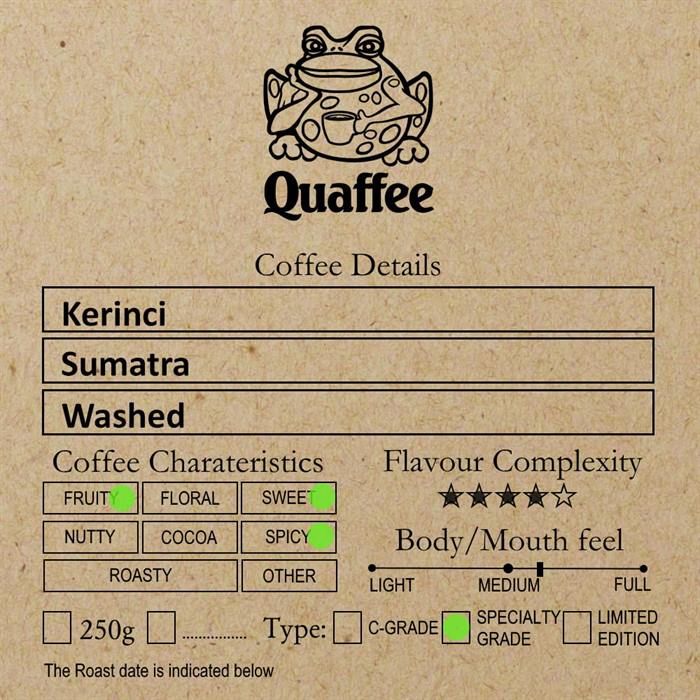
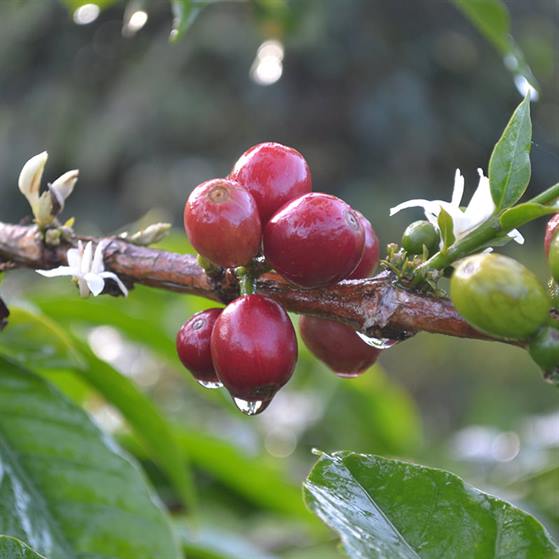
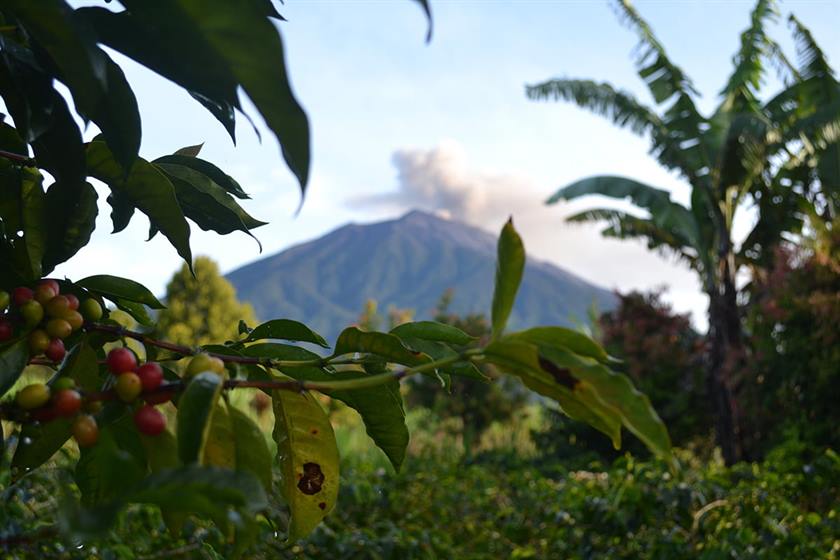
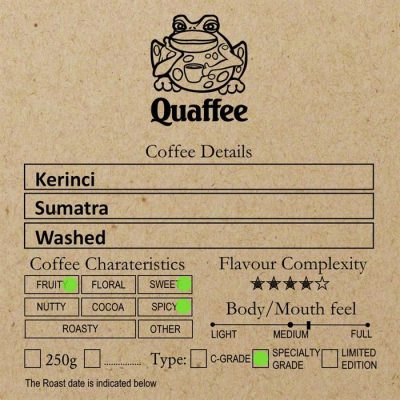
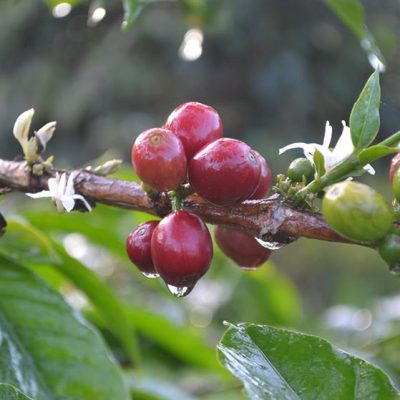
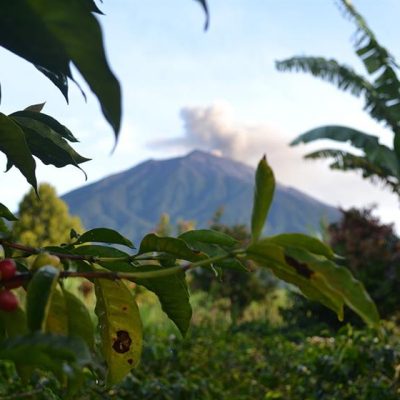
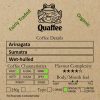
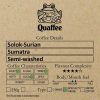
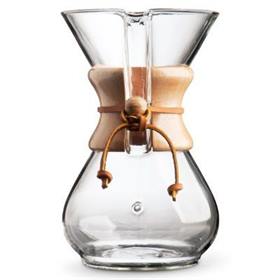
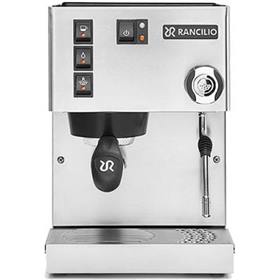
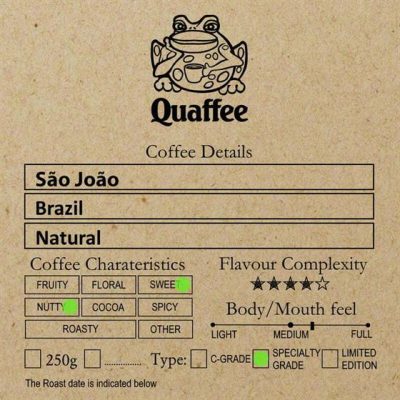
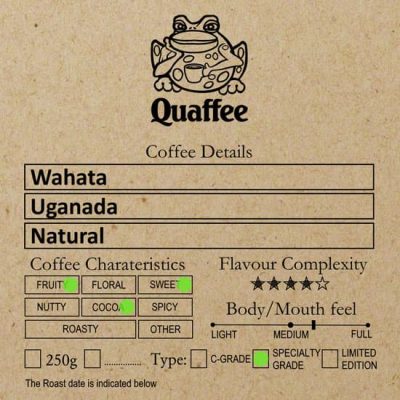

Reviews
There are no reviews yet.